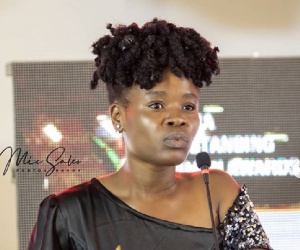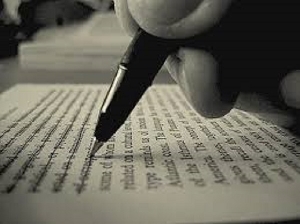- Home - News
- TWI News | TV
- Polls
- Year In Review
- News Archive
- Crime & Punishment
- Politics
- Regional
- Editorial
- Health
- Ghanaians Abroad
- Tabloid
- Africa
- Religion
- Election 2020
- Coronavirus
- News Videos | TV
- Photo Archives
- News Headlines
- Press Release
General News of Sunday, 23 November 2008
Source: Ace Ankomah
Book Review: 'Excursions in my mind'
Title: Excursions in my mind
Author: Nana Awere Damoah
Publisher: Athena Press (London)
Reviewed by: Ace Anan Ankomah, Lawyer/Lecturer
Number of pages: 136
Date of release: 14 October 2008
First, the title of Nana’s first book strikes you. Excursions In My Mind? I ask, “By whom?” An ant perambulating in grey matter? How does one take an excursion in his own mind? Then would it not be ‘Excursions Into My Mind’? Or does Nana’s mind have a mind of its own and therefore undertakes its own jaunts? Then would it not be ‘Excursions By My Mind’? And what is the mind? The brain? Intellect? Intelligence? Mentality? Psyche? Wits? Or Wikipedia’s “aspects of intellect and consciousness manifested as combinations of thought, perception, memory, emotion, will and imagination…, the stream of consciousness”? Or in law, the ability to will, direct, permit or assent?
Nana Awere Damoah, currently working with Unilever Ghana as a Production manager, shows us how. His background in Chemical Engineering, studies in the UK as a British Council Chevening scholar and his work for Unilever in Ghana give him a sound base for his writing and outreach to his peers, his elders and all of us.
Excursions in my Mind is a collection of reflective essays and poems, supported by quotations from literary sources, the Bible; actually all sorts of sources. The reflections cover a broad scope of issues that confront us everyday, and touch on key issues such as self-help, leadership, love for one’s parents, nature of friendship and daily walk in faith in contemporary life. The topics are selected as randomly as events and circumstances confront the average person but are cogitated upon, repeatedly, intertwined with the author’s own interesting life experiences and stories: a sort of perambulation in a labyrinth, but with an eventual egress, escorted by cogent lessons for life’s improvement. The author acts like a distillation plant that takes issues around him, mundane, routine everyday occurrences as his raw material, reflects on and processes them, producing various fractions, fit for use by his readers. But you cannot help but note that in this journey into his mind, Nana shows a virtual reverse narcissism – no self-love, no self-adulation, no self-absorption, no self-centeredness, no egotistical trips.
That Nana Damoah is a gifted storyteller, poet and part historian is evident from first pages of his book. The book mixes poetry and prose, fiction and fact, comedy and tragedy, memoir and creative writing. He seamlessly manages the transition between these seemingly opposing forms. For instance, in the middle of a story and whilst engrossed in the tales of the protagonists and antagonists, you get mildly hit by a lesson to reflect on, and then immersed fully in an action exercise. The author, a good literary chef, carefully chooses and adds quotations at the end of each chapter, just appropriate for the served repast. A good raconteur, he uses a strong assortment of word pictures and illustrations, and this brings out each main point clearly. Nana does not leave the lessons from each essay hanging; like a true business-oriented professional, he ensures that the reader exits each chapter with an action plan; actually, he thrusts one on you!
Nana introduces the reader to the new experience of his ‘mind excursions’ by his passion for reading and continuous learning and for bequeathing to the current and future generation the love for same. He quotes the North Korean leader as saying ‘a child should never be without a book.’ In this era where for the most part, the youth do not read, having been brought up on fast foods, fast cars, fast visuals and videos, fast everything, this is timely advice. Nana argues that it is the learning we do after school that really sets us apart; otherwise, we know what everyone else knows – that is, those who passed the final exams! The author challenges us to define ourselves and not let circumstances define us; at best, these conditions should refine us. You will find the tale of Aboko and the sagacity and prudence of Agya Nsiah deeply touching. You will find yourself nodding to the advice of Agya Nsiah that one should not be a chameleon whose skin colour turns to red because it is near a fire. It is the section on dreams that may make you think that Nana is an obvious supporter of Barack Obama! He weaves his stories and those of Lincoln and Martin Luther King Jr. beautifully, taking you to edge of the precipice and just halting short of concluding that history is to be made in the year of his publication. But then he imbues you with the conclusion that you can conquer your high places, reach for your skies and touch your stars. Each essay is set independently from the other and it is this style that makes the book even easier to read. You eat the book in chunks. You could decide to run and fall and still rise up with the little boy in Kumasi, cry with the author as he learns from loss in one year of losing three close relatives, then retreat to sing with the German and Russian armies as they face each other on Christmas eve, rejoice in his exhilarating poem that celebrates the fact that grace has made us no longer strangers or aliens, walk with him as he relates his upbringing in a compound house in Kotobabi, identify with him as he writes about his childhood hatred for ‘Talking Point’ before Obra and Osofo Dadzie (he mentioned Abyssinia as his best play! You remember that one, don’t you? The ghost story?) and then be challenged when he puts it to you that it is your responsibility to take care of your parents for their teeth to fall as they took care of you for yours to sprout!
The written message that this engineer/writer puts across is that life is a business to be worked at and lived, not just dreamed about, and that in doing this, we need to be ‘learning people’ – there is an example, a message, a lesson, a warning or a moral you can discover in every scene of the play that is called ‘life.’ He is never old who continues to learn and he is already old who ceases to learn. Harvey Ullman puts the same thought this way: “Anyone who stops learning is old, whether this happens at twenty or eighty. Anyone who keeps on learning not only remains young but becomes constantly valuable regardless of physical capacity.” With his scripts, Nana Awere Damoah manages to instigate thought, provoke reflections and educe action. The unwritten, tacit message, the sub-theme that he gives out with this excellent work is this – as an African writer, who is in a technical discipline (a practising Chemical Engineer), he is an example to our youth that they can experiment and explore, and not to let their scope and influence on their generation be restricted by their formal training, to stop restricting themselves to the box or pigeon-hole when they can go beyond the perimeter and reach the pinnacle of their potential, to grasp the verity that talents cannot be tamed and should be employed for the universal good of mankind.
Nana Damoah has a dream! Seeing literacy and continuous learning become fashionable again, even amongst the lettered, so that we do not become a community of literate illiterates. He has contributed immensely to his crusade with his first book, a quick, must-read for anyone who wants to ensure that six months from now, (s)he is not prehistoric and antediluvian, because the world is moving faster than the pace at which (s)he is renewing his/her knowledge.
At the end, I am still asking: Is this a journey in his mind by a stranger? Did the author go on a trip into his mind? Or did his mind go on a frolic of its own and by itself? I dunno. I can’t tell. He has succeeded in weaving word-webs around me. And, oh, the author has a fertile mind.









